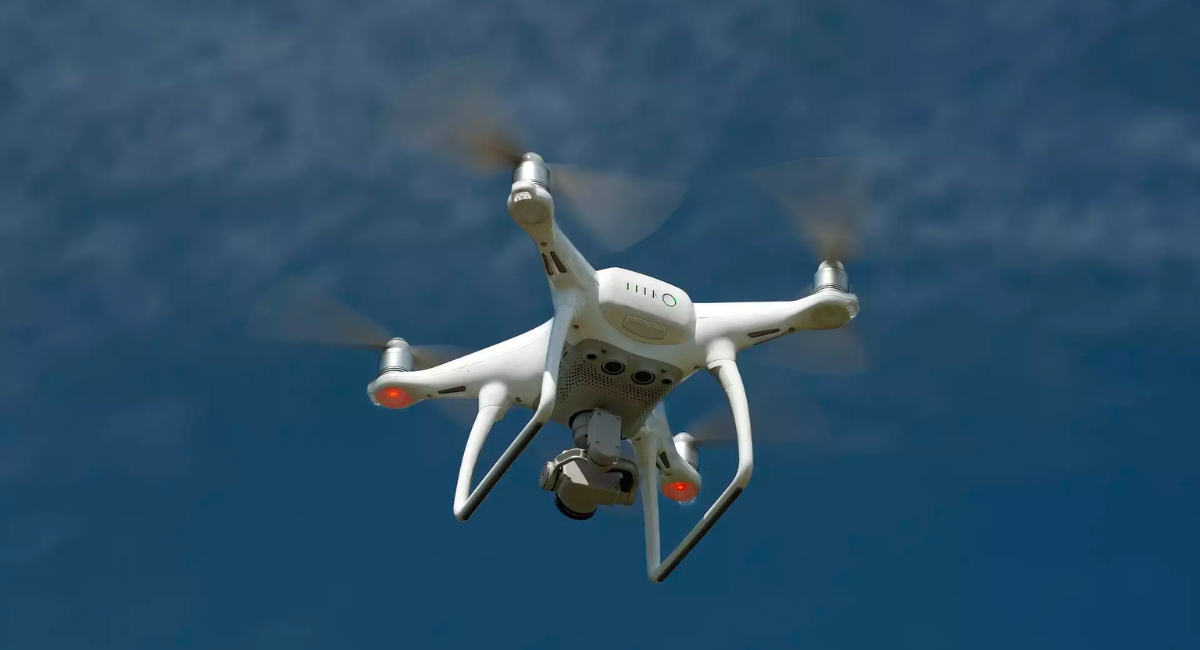Tech
Fintech Innovations, ChatGPT’s Role in Education, Khatabook’s Restructuring, and Bitcoin Surge: Key Insights

OpenAI, the renowned technology company, has unveiled a valuable resource for educators seeking to incorporate ChatGPT, their AI chatbot, into their classroom settings. Additionally, in the world of fintech, Khatabook, a Bengaluru-based company, has initiated staff layoffs as part of a strategic move towards profitability while simultaneously enhancing employee benefits.
OpenAI’s Guide for Educators:
In a bid to facilitate a seamless integration of ChatGPT into the educational sphere, OpenAI, a subsidiary of Microsoft, has released an insightful handbook tailored for teachers. This comprehensive guide encompasses prompt suggestions, a deep dive into biases, an explanation of ChatGPT’s capabilities and limitations, insights into the effectiveness of AI detectors, and a compilation of recommended prompts. OpenAI emphasizes its commitment to supporting educators by stating, “We’re equipping teachers with a comprehensive guide on how to leverage ChatGPT in their classrooms. This guide covers suggested prompts, an exploration of ChatGPT’s functionalities, a candid discussion on its limitations, insights into AI detectors, and a critical examination of bias considerations.”
Khatabook’s Workforce Restructuring:
Reports from insiders knowledgeable about Khatabook’s operations reveal the company’s recent workforce restructuring efforts. These changes have had an impact on employees in various roles, including engineering, product development, and marketing. A backend SDE employee stated, “Both technical and non-technical roles have been affected, spanning across engineering, product development, marketing, and more.” Additionally, employees affected by the restructuring have received a three-month severance package and an extension of ESOP (Employee Stock Ownership Plan) vesting, coupled with an expansion of medical insurance coverage.
Fintech Revolution Driven by AI:
The term “fintech,” an abbreviation of financial technology, has become synonymous with technological advancements aimed at revolutionizing the accessibility and delivery of financial services. Fintech startups are swiftly emerging as disruptors and pioneers within the financial sector, offering innovative solutions encompassing payments, lending, investing, insurance, and more. The driving force behind this fintech revolution is artificial intelligence (AI), enabling startups to automate processes, conduct data analysis, personalize services, and elevate the overall customer experience.
Bitcoin Surge in Turkey:
Turkey’s burgeoning interest in Bitcoin has been spotlighted in a recent report published by KuCoin, a prominent cryptocurrency exchange. The report reveals a significant surge in Bitcoin adoption during the second quarter of 2023, with an average investment amounting to US$3,746. Key findings from the study indicate that “36% of investors allocated over 100K Lira” and that “31% of crypto enthusiasts entered the market during the recent quarter.” These insights are derived from a survey encompassing 550 adult cryptocurrency investors in Turkey, ranging from 18 to 60 years of age, all of whom either presently own cryptocurrency or have recently invested in it.
Disclaimer:
It is essential to note that any financial or cryptocurrency market information presented in Analytics Insight’s articles is provided for informational purposes exclusively and should not be construed as investment advice. Readers are strongly advised to exercise caution, given that crypto products and NFTs are unregulated and entail significant risks. No legal recourse may be available for losses incurred in such transactions. Prior to making investment decisions, individuals are urged to conduct their own research and consult with financial experts. Perusing the content herein is voluntary and should not be interpreted as a binding commitment or guarantee on the part of Analytics Insight, absolving them from any potential legal actions or claims. Analytics Insight neither owns nor represents any cryptocurrencies, and any complaints, misuse, or concerns related to the provided information should be promptly reported.
Tech
Google Pay and NPCI Collaborate to Expand UPI Internationally, Revolutionizing Cross-Border Digital Payments

In a groundbreaking move, Google Pay and the National Payments Corporation of India (NPCI) have joined forces to expand the Unified Payments Interface (UPI) internationally. The partnership, as outlined in a Memorandum of Understanding (MoU) between Google Pay India and NPCI subsidiary NPCI International Payments Ltd (NIPL), aims to extend the widely used UPI system beyond Indian borders. This strategic collaboration is set to revolutionize international digital payments, ease transactions for Indian travelers, and establish UPI-style digital payment infrastructure in other countries.
Growing UPI Adoption in India:
The UPI system has witnessed remarkable growth in India, becoming a predominant mode of digital payment. In 2023, the value processed through UPI payments reached a staggering Rs. 167 lakh crores, reflecting the widespread adoption and trust in this instant payment system. The interoperability between popular payments apps like Google Pay, PhonePe, and Paytm has contributed to the seamless and widespread use of UPI throughout the country.
Also Read: Garuda Aerospace Receives Dual Certification, Paving the Way for Drone Innovation in India
The Collaboration’s Objectives:
The primary focus of the collaboration between Google Pay and NIPL is to facilitate digital payments for Indian travelers abroad. The initiative also aims to establish a UPI-style digital payments infrastructure in other nations, providing a secure and efficient alternative to traditional payment methods. Additionally, the partnership seeks to simplify cross-border financial exchanges by leveraging the existing UPI infrastructure for remittances between countries.
Impact on Cross-Border Financial Exchanges:
Deeksha Kaushal, Director of Partnerships at Google Pay India, highlighted the transformative impact of UPI on economies, emphasizing that joining such networks brings about a significant step change. The collaboration aims to extend the success of India’s digital payments ecosystem to other countries, making cross-border transactions smoother and more accessible. This initiative has the potential to reshape international finance by offering a secure and efficient alternative to conventional payment methods.
Simplifying Transactions for Indian Travelers:
One of the key objectives of this collaboration is to simplify foreign transactions for Indian travelers. By leveraging UPI apps like Google Pay for international digital payments, the need for credit or forex cards may be reduced. This not only enhances the convenience for Indian travelers but also positions UPI as a global player in the digital payments space.
Strategic Benefits for Google Pay and NPCI:
Ritesh Shukla, CEO of NPCI International Payments Limited, expressed that this strategic partnership not only simplifies foreign transactions but also allows the extension of expertise in operating a successful digital payments ecosystem to other countries. For Google Pay, this collaboration presents an opportunity to expand its footprint globally and reinforce its commitment to providing innovative and user-friendly payment solutions.
SEO Keywords for Maximum Visibility:
To enhance SEO score, incorporating relevant keywords is crucial. Keywords like “UPI,” “Google Pay,” “NPCI,” “digital payments,” “cross-border transactions,” and “international payments” should be strategically placed throughout the article. These keywords not only capture the essence of the collaboration but also align with the current trends in the fintech and digital payments landscape.
Conclusion:
The collaboration between Google Pay and NPCI to expand UPI internationally marks a pivotal moment in the evolution of digital payments. As UPI continues to redefine the landscape of financial transactions in India, its extension to global markets holds the promise of transforming cross-border payments. With the potential to simplify transactions for Indian travelers and establish a UPI-style infrastructure globally, this partnership is set to shape the future of international digital payments. As Google Pay and NPCI pave the way for a seamless and secure cross-border payment ecosystem, the impact on the global financial landscape is likely to be substantial.
Tech
Garuda Aerospace Receives Dual Certification, Paving the Way for Drone Innovation in India

In a groundbreaking development, the Directorate General of Civil Aviation (DGCA) has granted Garuda Aerospace the coveted authorization for a Remote Pilot Training Organization (RPTO) for Small and Medium Class drones. This dual certification not only sets Garuda Aerospace apart as a trailblazer but also positions it as the sole drone company in India with the unique distinction of being certified for both drone training and manufacturing in the small and medium class categories.
The significance of this achievement is underscored by the company’s assertion that it aligns with the vision of Prime Minister Narendra Modi’s ‘Namo Drone Didi’ initiative. This initiative seeks to empower 15,000 women Self Help Groups with agricultural drones, contributing to the advancement of technology and enhancing the role of drones in the agricultural sector.
Empowering the Youth and Fostering Inclusion:
Garuda Aerospace’s commitment to training the next generation of drone pilots in India is evident in its goal to train 100,000 youth across the country. This not only aligns with the company’s vision for widespread adoption of drone technology but also supports the broader national agenda of upskilling and empowering the youth with cutting-edge capabilities.
Moreover, the dual certification by DGCA aligns seamlessly with Garuda Aerospace’s Diversity, Equity, and Inclusion (DE&I) initiative, specifically through the Equality Drone Training Program. This program is designed to benefit individuals with disabilities, emphasizing the company’s commitment to creating an inclusive environment in the rapidly evolving drone industry.
Versatile Applications of Small and Medium Class Drones:
Garuda Aerospace’s array of small and medium drones caters to a diverse range of applications. Small drones are adept at surveillance, monitoring, and photography, showcasing their versatility in various industries. On the other hand, medium drones excel in more complex tasks such as agricultural mapping, spraying, infrastructure inspection, delivery services, and emergency response.
Also Read: Apple’s Strategic Moves: Advancing Manufacturing Operations in India
This dual certification not only positions Garuda Aerospace as a key player in the drone manufacturing space but also elevates its role as an organization driving innovation and progress in India’s drone ecosystem.
Founder and CEO’s Vision:
Agnishwar Jayaprakash, the Founder and CEO of Garuda Aerospace, expressed gratitude for the DGCA’s dual certification. He underscored the company’s unwavering commitment to excellence and its overarching vision for both the company and the nation. Jayaprakash believes that drones have transformative potential across various sectors and anticipates that the DGCA certifications, coupled with government support, will expedite the adoption of drones in India.
Furthermore, the visionary leader sees this achievement as a catalyst for propelling India into a global hub for drone technology. With government initiatives supporting advancements in the sector and Garuda Aerospace’s dedication to innovation, the company is poised to play a pivotal role in shaping the future of drone technology in the country.
Contributions to Innovation and IPO Plans:
In support of various initiatives, Garuda Aerospace recently showcased over 1000 drones during the Viksit Bharat Sankalp Yatra. The company’s earlier accomplishments, including Type Certificates and RPTO Authorization for Garuda Kisan Drones, along with a second Type Certification for medium class drones, highlight its active contribution to innovation in India’s drone ecosystem.
With legendary cricketer M S Dhoni backing the venture, Garuda Aerospace is not only making strides in innovation but is also gearing up for its Initial Public Offering (IPO). The company’s dedication to excellence, coupled with its strategic alignment with government initiatives, positions it as a frontrunner in the burgeoning drone industry in India.
In conclusion, Garuda Aerospace’s dual certification by DGCA is a testament to its commitment to innovation, inclusivity, and the advancement of drone technology. As the company continues to push boundaries, it not only solidifies its position in the industry but also contributes significantly to India’s journey towards becoming a global leader in drone innovation.
Tech
Apple’s Strategic Moves: Advancing Manufacturing Operations in India

In a significant move to strengthen its manufacturing foothold in the world’s second-largest smartphone market, Apple is reportedly in advanced talks with key component makers, including India’s Aequs Group and Taiwanese camera and lens manufacturer Rayprus Technologies. The Cupertino-based tech giant is also said to be in preliminary discussions with Indian contract manufacturer Dixon Technologies, signaling a concerted effort to diversify its supply chains beyond China.
Aequs Group: A Multifaceted Manufacturing Powerhouse
Aequs Group, based in India, is a versatile manufacturing powerhouse with a diverse portfolio. Renowned for producing high-quality toys, consumer durable goods, and aerospace parts across locations in India, the United States, and France, Aequs brings a multifaceted capability to the table. The inclusion of Aequs in Apple’s supply chain could extend beyond electronics manufacturing, as the company is equipped to produce a range of precision products, including iPhone cases and other high-quality items requiring exacting standards.
The strategic partnership with Aequs represents Apple’s intention to not only deepen its manufacturing operations but also to diversify across different product categories. By leveraging Aequs’ expertise in aerospace and consumer durable goods, Apple aims to enhance its presence in India and potentially tap into the growing demand for high-quality products in diverse sectors.
Rayprus Technologies: Precision Imaging Solutions Beyond China
Rayprus Technologies, a subsidiary of Taiwanese contract manufacturing giant Foxconn, is another key player in Apple’s expansion plans. Specializing in high-quality precision camera and lens solutions, Rayprus holds a unique position as one of the few suppliers globally that offer multi-camera modules for smartphones outside of China.
Also Read: OpenAI Launches Second Round of AI Startup Fund
The significance of Rayprus Technologies lies not only in its expertise but also in its strategic location. As Apple seeks to diversify its supply chains and reduce dependency on Chinese manufacturing, Rayprus emerges as a pivotal partner in providing cutting-edge imaging solutions. The move aligns with broader industry trends, where companies are exploring alternatives to traditional manufacturing hubs to mitigate risks and enhance operational resilience.
Dixon Technologies: Exploring Further Diversification
In addition to Aequs and Rayprus, Apple is reportedly in preliminary discussions with Dixon Technologies, an Indian contract manufacturer. While details of the discussions remain undisclosed, the inclusion of Dixon in the talks underscores Apple’s proactive approach to diversify its supply chains.
Dixon Technologies, a leading player in the Indian electronics manufacturing landscape, could contribute significantly to Apple’s plans for reducing reliance on Chinese manufacturing. If the discussions progress, it could open new avenues for Apple to tap into India’s burgeoning manufacturing capabilities, offering a strategic advantage in a market with substantial growth potential.
Strategic Implications and Market Dynamics
Apple’s moves to deepen its manufacturing operations in India carry significant strategic implications. Diversifying its supply chains not only reduces dependency on a single region but also aligns with global trends in supply chain resilience. The geopolitical landscape, coupled with disruptions caused by the ongoing global pandemic, has prompted many tech giants to reassess their manufacturing strategies.
The Indian government’s initiatives to boost domestic manufacturing through programs like “Make in India” align with Apple’s efforts to expand its footprint in the country. By engaging with local manufacturing partners, Apple not only gains access to a skilled workforce but also contributes to the growth of India’s manufacturing ecosystem.
Conclusion: Apple’s Commitment to Diversification and Growth
Apple’s advanced talks with Aequs Group, Rayprus Technologies, and preliminary discussions with Dixon Technologies signify the company’s commitment to diversifying its manufacturing operations. Beyond the immediate goal of reducing dependency on Chinese manufacturing, these strategic partnerships underscore Apple’s recognition of India as a key market with immense growth potential.
As Apple continues to navigate the complexities of the global supply chain landscape, these collaborations with diverse manufacturing partners reflect a forward-looking approach. The expansion of manufacturing operations in India aligns with broader industry trends and positions Apple to leverage the country’s strengths in manufacturing across various sectors. The developments hold promise not only for Apple’s growth but also for the continued evolution of India’s role in the global manufacturing ecosystem.







